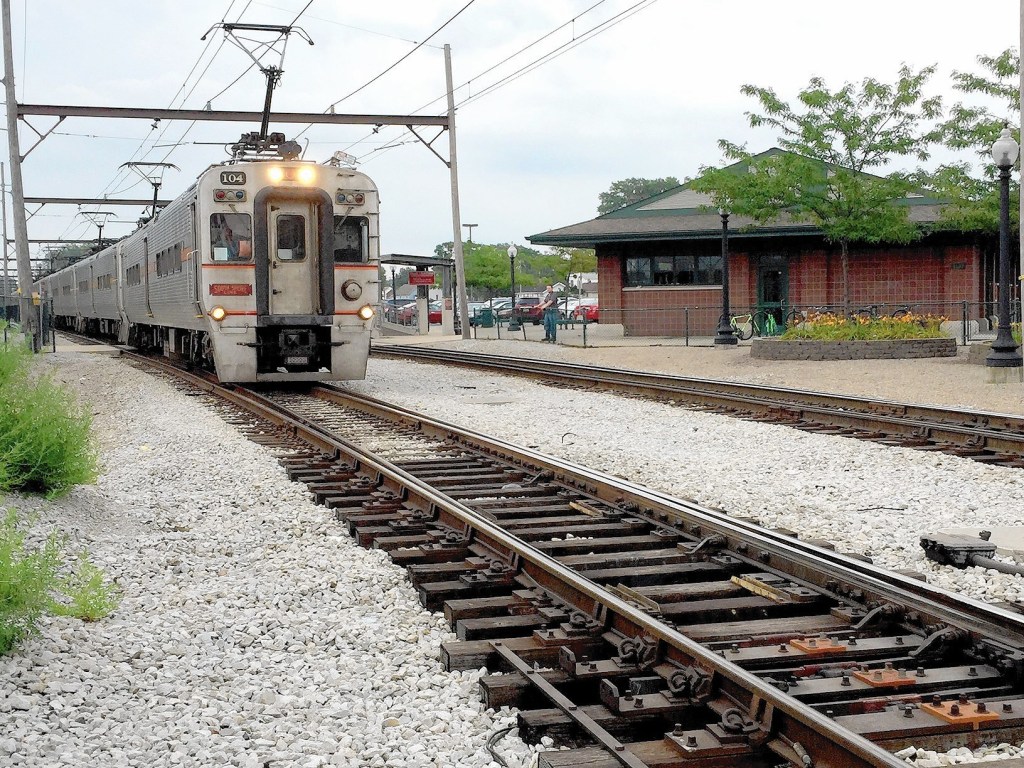The Hammond City Council will consider a 1% food and beverage tax at its Monday meeting to fund the expansion of the Hammond Sportsplex and the construction of South Shore Station downtown.
The Indiana Legislature passed a bill this year allowing the city of Hammond to impose a 1% tax on prepared foods and beverages, said Hammond Mayor Tom McDermott, who said the tax would be on top of the state’s 7% sales tax.
“Council has been given permission to debate the matter and see if they can put in place a bylaw. The ball is now handed to Hammond Council,” Mr McDermott said.

Suzanne Tennant/Post-Tribune
Mayor Thomas McDermott Jr. has proposed a 1% food and beverage tax that would benefit the expansion of the Hammond Sportsplex and the extension of the West Lake Corridor on the South Shore, which the City Council is scheduled to discuss at its meeting Monday. (Suzanne Tennant/Post-Tribune)
The state directed that the funds raised from the tax be used for three projects: the expansion of the Hammond Sportsplex, construction of the Downtown South Shore Station along the West Lake Corridor and the expansion of the Wolf Lake Pavilion.
McDermott said he thinks the money would be best spent on the Sportsplex and train station.
“With this funding, we can’t spend it on anything other than these three projects,” McDermott said. “The first two projects will wipe out all the funding.”
McDermott said he estimates the tax could bring in $2 million a year over 20 years. On a restaurant bill of $50, the city’s food and beverage tax could be 50 cents, he said.
McDermott stressed that the sales tax only applies to prepared foods and beverages, not groceries. No one enjoys a tax increase, but McDermott said residents can avoid it.
“This is a tax that, unlike most other taxes, you can literally just avoid by not going out,” McDermott said. “If you don’t go to a restaurant, if you don’t go to a fast food restaurant, you don’t have to pay the tax.”
The Sportsplex is a major tourist attraction in Hammond, drawing many people from out of town to attend tournaments, McDermott said. In 2023, the Sportsplex generated $1.2 million in revenue, including concession sales, bar sales and tournament entry fees, McDermott said.
McDermott said the train station will contribute to further redevelopment of the downtown area.
Councilman William Emerson, 4th Ward, said he supports the tax because it would be used to redevelop the city.
“One percent is not that big of a deal to me, so I’m in favor of it,” Emerson said.
Councilman Dave Worpel, 5th Ward, said he supports the tax because redevelopment would bring more businesses and people to the area.
“To me, it makes a lot of sense because it brings economic development,” Worpel said.
Ray Garcia, owner of El Taco Real and a longtime Hammond resident, has mixed feelings about the tax, but on the surface, the ordinance appears to be socially beneficial, which he appreciates.
But only one project appeals to him.
“The West Corridor project will appeal to a much broader demographic because it will bring people from Chicago to downtown Hammond, so it’s certainly a worthwhile investment,” he said, “but the Sportsplex will appeal to a smaller, more specific demographic and, frankly, probably won’t extend beyond that immediate area. How does that benefit us?”
Garcia and Matt Przewoznik, owner of Flat Rock Tap on Calumet Street, said restaurants and bars are struggling to get back to normal post-COVID. Garcia said El Taco Real has finally fully recovered from the pandemic, but Przewoznik said they’re still working on getting back on track. The tax, even a small amount, won’t do much to bring in customers, Przewoznik said.
“I’m not in favor of a lot of taxes because again, it’s the small businesses that are going to get hit, and Hammond has a lot of mom-and-pop businesses,” he said. “What about the casinos that are giving out free drinks? What about if the county passes it? Is it just going to be on top of Hammond’s taxes? What about festivals? Are they going to be taxed?”
Garcia agreed.
“Restaurants are being taxed unilaterally again,” he said. “It’s hard to find funding for these efforts, so I’m generally in favor, but I wish (city officials) would have listened to us.”
Garcia also wondered how the funds would be managed and who would do it, because that would be a problem for him.
“Look at Hammond School City. There was a referendum, no offense, but look what happened. Is this going to be the usual suspects? To me it’s about oversight,” he said.
Hammond voters approved an operational referendum in 2017 but rejected a blanket reinstatement of the referendum in November 2023. The funding shortfall has led the district to close three schools and eliminate more than 170 jobs, among other cost-cutting measures.
For Przewoznik, there seems to be a better way to make money: He works in Cook County and often sees signs advertising video games in bars.
“Illinois makes between $250 million and $300 million a year from video games. What better source of revenue than a 1% tax? That could be $150,000 per bar per year put back into the community and no one is forcing people to use gaming machines,” he said.
“It’s 1% now, but in the future will it be 4% or 5%? I’ve never heard of abolishing the tax.”
akukulka@chicagotribune.com
Michelle L. Quinn is a Post-Tribune freelance reporter.


